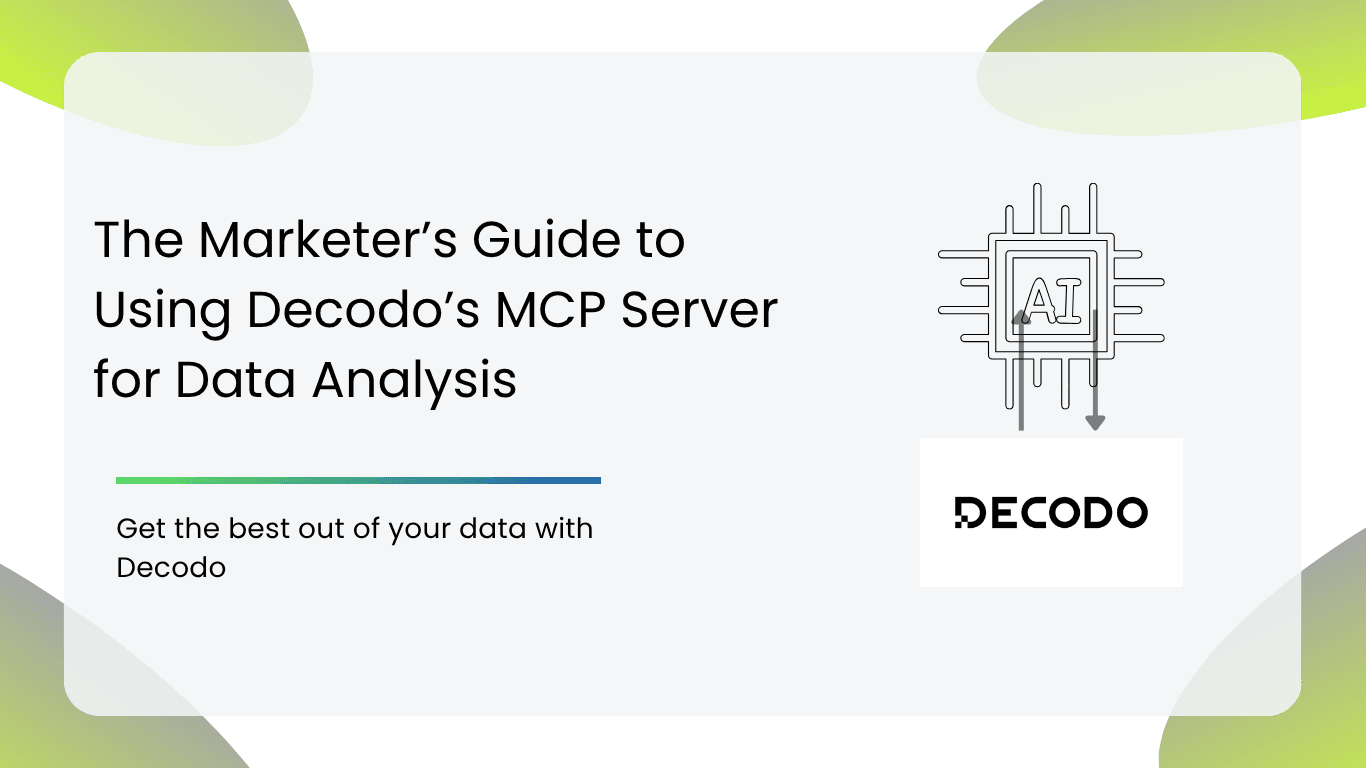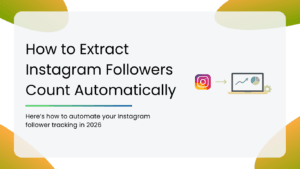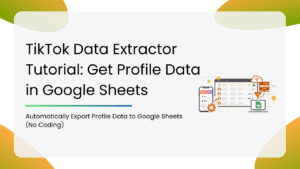Over the past year, the Model Context Protocol (MCP) has evolved from a niche concept into a go-to standard for integrating LLM (Large Language Model) agents with real-world tools and live data. The complexity often lies in giving AI models the necessary situational data to deliver accurate responses and handle complex operations. The goal of this integration is to enable these AI agents to deliver smarter, context-aware responses and manage complex workflows independently.
Decodo’s MCP server connects LLMs and other third-party applications to Decodo’s web scraping platform. This integration enables marketers to connect their LLMs to the internet for instant and easy access to publicly available data on almost any website online.
This MCP server facilitates integration between MCP-compatible clients such as Claude Desktop, Cursor and Decodo’s services, streamlining access to their tools and capabilities.
Why Marketers Need Decodo’s MCP Server
Setting up the Decodo MCP server enables marketers to connect their LLMs to broader data on the internet immediately. Once configured, the MCP server scrapes data from any site you need. Instead of writing code to scrape websites, all you have to do is ask your AI assistant for data, and it automatically performs the extraction.
This setup allows for several key advantages for data analysis:
1. Unrestricted, Real-Time Access to Public Data:
Decodo’s MCP server connects LLMs directly to the Web Scraping API, granting easy access to publicly available data on almost every website online. This real-time access is vital for marketers who rely on current market intelligence:
- Scraping from Nearly Any Source: Provides the ability to scrape content from almost any site. Furthermore, it enables data extraction from websites that rely heavily on JavaScript ensuring comprehensive coverage of modern web targets.
- Structured Data Extraction: The server exposes specialized tools that marketers can leverage through prompts in plain English. For example, google_search_parsed: automatically handles Google Search queries and returns results as structured data which is crucial for SEO and competitive ranking analysis.
2. Reliability, Bypassing Blocks and Geographic Flexibility:
- Bypassing Scraping Hurdles: Incorporates advanced scraping infrastructure which is able to get past most scraping hurdles. This includes automatically overcoming common obstacles like CAPTCHA, IP blocks and geo-restrictions.
- Global IP Rotation: System automatically rotates IP addresses from an extensive proxy pool which consists of 125+ million IPs across 195 countries worldwide. This scale is essential for large-scale market monitoring.
- Region-Specific Content: Ensures geographic flexibility and region-specific content. Marketers can explicitly prompt the AI to scrape geo-restricted content by specifying the required geographic location (setting geo-parameters).
- Built-in Management: Includes built-in error handling and smart request management which provides automatic retries and smart rate limiting. This ensures that scraping tasks run reliably without the risk of overloading target servers.
3. AI-Driven Transformation of Raw Data into Marketing Insights:
The MCP server shifts the focus from data collection (a technical task) to insight generation (a marketing task).
- Turning Raw Data into Insights: Instead of wading through massive datasets, marketers can use the LLM agent to turn raw data into insights. This is absolutely necessary for monitoring content performance or tracking complex metrics.
- Agentic Capabilities: This setup lets LLM agents deliver smarter, context-aware responses and handle complex workflows on their own. Marketers simply ask for the data they want and the AI automatically decides if using an MCP tool is appropriate.
- Content Management and Summarization: The LLM can be prompted to summarize data or manage data output by adjusting the tokenLimit to control the size of the response content.
4. Essential Use Cases for Marketing Roles:
The MCP server capabilities directly address several key marketing data analysis needs:
- Competitive Intelligence: Marketers can autoscrape competitor sites and prompt LLMs to summarize product or pricing changes. Paid advertising specialists can monitor competitor advertising campaigns (ads, libraries, texts, placements, etc) and analyze the market.
- SEO Analysis: SEO specialists can monitor LLM citations and analyze competitors by checking backlinks, sitemaps and aggregate keywords.
- Market and Content Monitoring: Content and product marketing managers can track competitors and monitor keywords and track trends. Social media specialists can manage multiple social media accounts and analyze popular topics, hot news and emerging trends.
How MCP Server Simplifies Marketing Data Analysis
- Step 1: Data ingestion from multiple sources (CRM, ads, analytics, email, social).
- Step 2: Processing & standardization (cleans messy, inconsistent data).
- Step 3: Querying & analysis (how marketers can ask better questions).
- Step 4: Exporting insights into dashboards or reports.
Practical Marketing Use Cases of Decodo’s MCP Server
Leveraging the MCP server significantly enhances specific marketing roles by providing real-time, structured data for analysis:
1. Content & Product Marketing Managers:
For content and marketing managers, this MCP server reduces manual research and reporting by automating performance tracking and competitor insights. They can:
- Track competitor activity (page changes, new releases, pricing changes, social media or blog posts, content rankings, news).
- Analyze the market and write content briefs with AI (scrape and analyze content, generate insights).
- Analyze content performance (get automatic updates on SEO, video, rankings, engagement, social media)
2. Paid Advertising Specialists:
Paid ads experts can leverage the MCP server to simplify competitor and campaign monitoring. By centralizing data, they can:
- Monitor competitor advertising campaigns (ads, libraries, text, placements).
- Monitor competitor websites and social media accounts.
- Automate market research and see who is advertising on what keywords under which geographic locations.
- Verify ad health and ensure ads are running smoothly.
- Analyze the market and write ad copy using AI by scraping and analyzing online content to generate ad variations.
- Track advertising trends and other popular changes in the market in real time.
3. Affiliate and Influencer Marketing Specialists:
Affiliate marketers and influencers often juggle multiple partners and channels. MCP Server helps them monitor performance and unlock opportunities to grow reach. They can:
- Monitor keywords and see what partners are ranking well.
- Analyze trends like emerging content topics, hashtags, social media movements.
- Track partner performance metrics such as engagement, rankings, keywords, video metrics, etc.
- Improve partner content by spotting factual errors and suggesting improvements with AI.
- Gather contacts for outreach by scraping YouTube, social media and websites for partner discovery.
- Conduct competitor collaboration analysis and see who they’re partnering with, performance levels and coverage.
4. SEO Specialists:
SEO specialists can use the MCP server to streamline keyword research, competitor analysis and content ideation. This leaves more free time to focus on strategy. They can:
- Monitor keyword rankings and competitor performance.
- Track LLM citations and monitor brand mentions in AI-generated content.
- Analyze competitors’ backlinks, sitemaps, keyword overlap and content.
- Run technical audits and simulate crawler behavior.
- Generate new SEO content ideas and briefs with AI.
5. Social Media Specialists:
Social media teams can utilize the full potential of this MCP server to track trends, competitors and brand sentiment across platforms in real time. This enables them to:
- Monitor competitors’ profiles, posts, engagement and strategies.
- Analyze sentiment from brand mentions across social channels.
- Manage multiple accounts efficiently.
- Spot trends, popular topics, breaking news and emerging social discussions.
- Create content briefs with AI by scraping and analyzing data to generate post ideas.
6. PR Specialists:
PR professionals thrive on timely insights and media connections. MCP Server gives them the tools to automate monitoring and distribution. They can:
- Track brand mentions and sentiment.
- Gather media contacts for PR outreach.
- Automate content distribution across channels.
- Collect structured data for PR stories (research, job postings, competitive intel).
- Get breaking news alerts in real time.
- Use AI to analyze media coverage and competitors for new PR angles.
Getting Started with Decodo’s MCP Server for Marketing Teams
Decodo’s MCP server allows MCP-compatible clients to access Decodo’s advanced web scraping services. This setup negates the need for custom integrations and enables developers to create more intelligent AI assistants.
Seamless Integration: Supports setup with popular MCP clients and IDEs including Claude Desktop and Cursor.
Prerequisites: Must have Decodo Web Scraping API credentials (available with the Web API advanced plans)
Simple Prompting: Once configured, you can eliminate the need to write scraping code; you simply prompt your AI assistant and the AI automatically uses the appropriate tool. Example prompt: “Grab the latest stories from Hacker News”
Setup Method: Installation can be done manually or via the recommended Smithery Quick Start. Click here for more setup information.
Best Practices for Data-Driven Marketing with Decodo’s MCP Server
Running effective data-driven campaigns shouldn’t rely on just collecting information. It’s all in how you structure, interpret and act on the data scraped. Decodo’s MCP server gives marketers the tools to make smarter decisions but success depends on following a few best practices:
1. Define clear KPIs before diving into data
Even the best analytics platform won’t deliver any meaningful results without well-defined KPIs. Identify specific goals like lead quality, conversion rates or customer lifetime value that align with your broader marketing objectives. This ensures that the insights gained directly support business outcomes.
2. Automate routine reports
Save time and reduce manual errors by letting the MCP server handle repetitive reporting tasks. Automated updates ensure you have the latest data and metrics your team needs at their fingertips. This frees up time to focus on strategy and optimization.
3. Align insights with campaign strategy and not just reporting
Data should guide decision-making and should be integrated directly into your campaign planning and execution. This helps ensure your marketing strategies are proactive and constantly driven by insights.
4. Ensure data hygiene
Avoid the pitfall of garbage in, garbage out. Clean, accurate data is the foundation of effective analysis. Regularly audit your inputs, like customer records, campaign tags, and tracking codes, to ensure the MCP server processes reliable information. Poor data quality can mislead strategy and weaken results.
Common Mistakes Marketers Should Avoid
While Decodo’s MCP server empowers marketers to make smarter, data-informed decisions, it’s easy to fall into certain traps that limit its effectiveness. Here are some pitfalls to watch out for:
1. Treating it like “just another analytics tool.” The MCP Server isn’t just for reporting; it also functions as a decision-making engine. Marketers who use it passively, rather than integrating its insights into strategy and execution, miss out on its full value.
2. Overcomplicating queries without a strategy. It’s tempting to pull every metric possible, but complexity without purpose leads to noise. Instead, design queries around your campaign objectives and KPIs and ensure the data you extract answers clear business questions.
3. Ignoring collaboration with data engineers. Marketers don’t have to do everything alone. Working closely with data engineers ensures cleaner data pipelines, optimized queries, and a more effective use of the MCP server’s capabilities. Neglecting this collaboration often results in wasted time and inaccurate insights.
4. Relying only on vanity metrics. Clicks, impressions, and followers look good on paper but don’t always drive revenue. Overemphasizing vanity metrics can distort performance evaluation. Focus instead on deeper indicators like customer acquisition cost, retention, and ROI to maximize impact.
The introduction of Decodo’s MCP server marks an important shift in how marketers access and analyze web data. By implementing this server, you are leveraging a go-to standard for integrating LLM agents with real-world tools and data. These crucial connections grant your LLM agents the capability to deliver smarter, context-aware responses and handle complex workflows on their own.
Decodo provides the foundational infrastructure needed to connect sophisticated AI models directly to high-quality, real-time web data. The setup essentially turns your AI chat into a web scraping powerhouse.
Try Decodo’s Web Scraping API advanced plan for free to unlock the full potential of AI-powered data analysis for your marketing team.
If you’re interested in learning more about MCP servers, we highly recommend looking into our blogs:
- The End-to-End Model Context Protocol (MCP) Guide for Marketers
- Best MCP Servers for Marketers
- Connect Google Analytics 4 to Claude Desktop with an MCP Server – A Complete Guide
- Connect Google Ads Keyword Planner to Claude Desktop with an MCP Server: A Complete Guide
- Connect Google Search Console to Claude Desktop with an MCP Server — A Complete Guide
- Connect Facebook Ads to Claude Desktop with an MCP Server: A Complete Guide
- Access Google Analytics 4 data in Claude using Apify MCP – A Complete Guide
- Access Google Search Console data in Claude using Apify MCP – A Complete Guide
FAQs
Decodo’s MCP Server is a powerful platform that integrates and processes marketing data from multiple sources, helping marketers analyze campaigns in real time.
Marketers can unify data from ads, CRM, and analytics tools, run queries, and generate actionable insights for better ROI and attribution.
Yes. While advanced features may require technical help, Decodo offers integrations and user-friendly workflows tailored for marketing teams.
The main benefits include enabling real-time insights, automating reporting, and improving campaign performance tracking.
Absolutely. It helps marketers track spending across channels, measure customer journeys, and attribute conversions more accurately.





